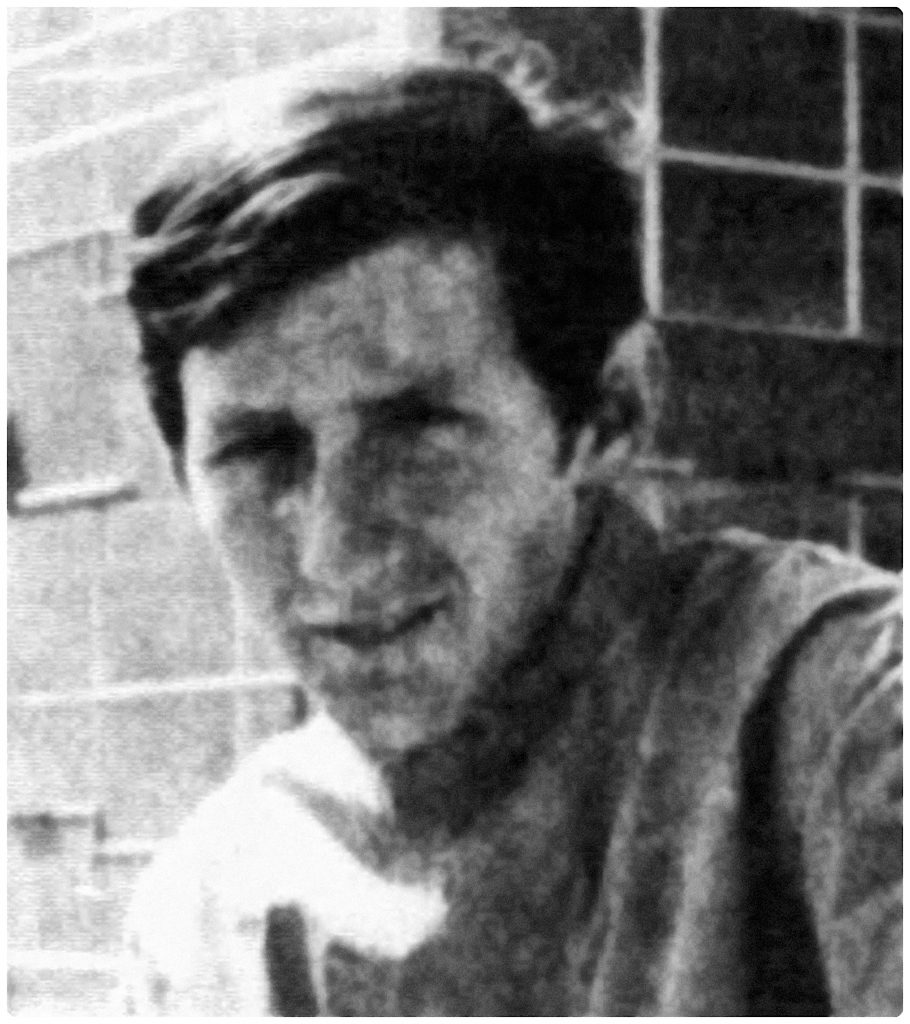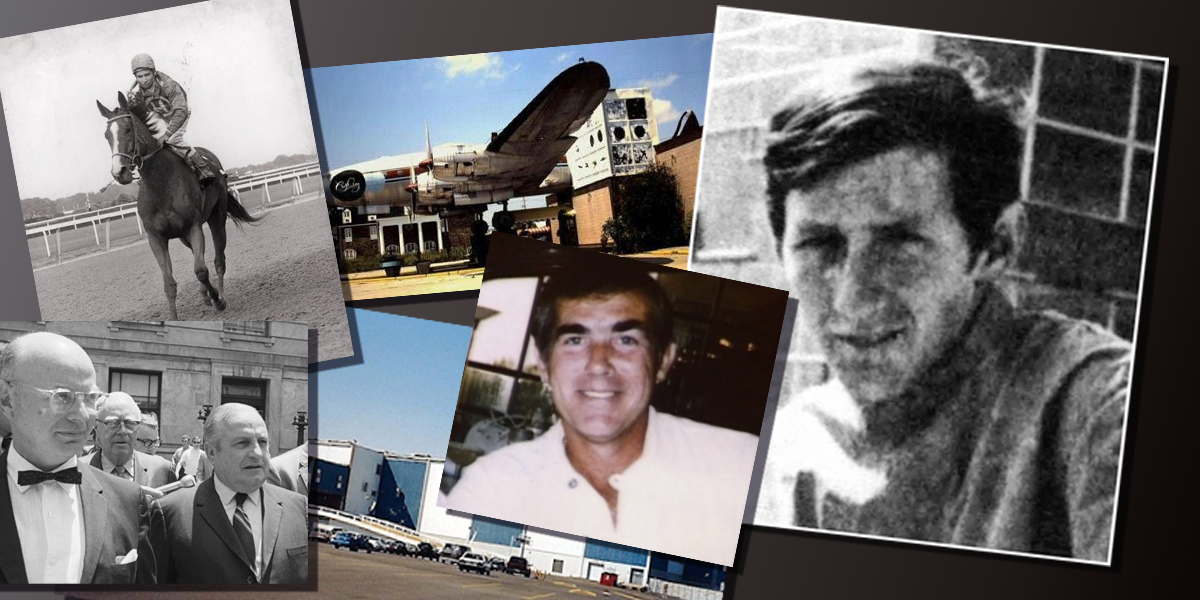Jefferson Downs jockey murder still a mystery
Friday afternoon, January 25, 1975, a witness testified in a hearing before the racketeering trial of reputed mafia boss Carlos Marcello. Asked why another subpoenaed witness failed to appear, the witness, Raymond D. Young, said he did not know, and attorney Sanford Krasnoff explained that someone killed him two days earlier.
Krasnoff next asked about a newspaper reporter, murdered two months earlier. Again, Young denied knowing anything about it. At that, the lawyer tried once more, inquiring about the 1974 murder of 19-year-old thoroughbred jockey James Robert Sibille.
Again, Raymond D. Young denied knowing anything about the murder.
Nine months before the Marcello hearing, on a Thursday morning, April 18, a teenage girl stood outside her apartment at 2362 Georgia Avenue in Kenner, throwing pea gravel at the apartment window above hers, and outside the door of the upstairs apartment, the girl’s roommate pounded on the door with both girls shouting, “Jimmy! Jimmy!”
No one answered at the door or window.
The girls found this odd. They left their friend two hours earlier, promising to return at six and wake him for breakfast after their all-night party in Jimmy Sibille’s apartment. Sam Kleindorf, Jimmy’s agent and the fourth in their party, left at two, reminding Jimmy the track expected them at seven for morning workouts.
Kleindorf, who had a key to Jimmy’s apartment, returned at four that afternoon and unlocked the door. Jockey Kenny LeBlanc, accompanying Kleindorf, waited outside but hear sounds of a radio, WTIX, coming from the apartment.
Inside, Kleindorf found Jimmy on his back in bed, his head covered in blood with a .22-caliber revolver laying across his chest. “My God,” Kleindorf said to LeBlanc and the girls as he backed out the door, “He’s shot himself.”
Pounding his door that morning, the girls had not heard Jimmy’s radio playing in the room, and in the two hours they left him to make breakfast, they never heard gunshots.

Jefferson Parish Coroner Dr. Charles Odom found this remarkable. He said Someone shot Jimmy four times in the head—in the left temple, right ear, under his chin, and into his shoulder. He told reporters the death was certainly a homicide and that the assailant had left the gun on the dead man’s chest to stage a suicide.
Investigators discounted robbery as a motive after finding $21 in Jimmy’s pocket and another $15 in a dresser drawer. Jimmy also wore an expensive watch, still on his wrist, spattered with blood.
Kenner Police suspected Kleindorf, but LeBlanc insisted that was impossible. “He was Jimmy’s best friend,” LeBlanc said, “More than a mentor, he was like a father to Jimmy.”
Police also asked LeBlanc about Jimmy’s older brother, Raymond Frederick Sibille, a rival jockey, but Ray had left town the Monday before Jimmy’s murder.
“Everything seemed fine when I left,” Ray told me. “He seemed happy, not a care in the world. But his death devastated my parents,” Ray said. “There were eight of us, five boys and three girls, but they never got over his murder.”
Ray’s thoroughbred racing career spanned thirty-five years. He rode his first winner on June 29, 1969, at Evangeline Downs in Carencro, Louisiana. The week Jimmy died, Ray left for the Los Alamitos track in Southern California, where he won top honors.
“What started as a six-month job turned into 12 years,” Ray remembered.
He saw his greatest success in 1988, winning the Hollywood Turf Cup Stakes, San Juan Capistrano, San Luis Obispo, and San Marcos Handicaps before capping off the year with a win in the Breeders’ Cup Turf.
In 1993, Ray moved to Northern California and then Chicago, where he competed until retiring after hip surgery in 2004. In 2005, he received the George Woolf Memorial Jockey Award, a one-time honor given annually by the members of the Jockeys’ Guild to a jockey in North America who shows high standards of personal and professional conduct, on and off the racetrack.
I asked Ray how often gamblers approached him about throwing a race.
He said, “You’re thinking right. That’s what got my brother killed. The shady characters were out there. You just had to know how to spot them, how to avoid them. Now, with all the cameras, that’s gone. If a rider lost intentionally today, they’d know right away.”
Jockey David Copling said Jimmy, whom he called “Snipe,” hated gambling and the rackets. “Every race he rode, he tried just as hard as the last, but he was naïve. If they threatened him, he took it as a prank.”
Jockey Floyd Searcy said, “Jimmy was really straight, one of the straightest ones out there. A nice guy, always smiling, with no worries in the world, he had lots of wins and always money in the bank.”
Two nights before his death, Jimmy Sibille of Sunset, Louisiana, riding a horse called Joe Top, became the last jockey to win a night race at the Jefferson Downs track. Sam Kleindorf told police that Jimmy received a phone call before the race instructing him to lose his race. A year later, Sheriff Al Cronvich told reporters his investigators had not ruled out that possibility.
“We thought there was something to that,” the sheriff said. “That’s why I asked the FBI to help. We hear all kinds of rumors and we talk to lots of people. This case file is over a foot thick, but we’ve checked every lead, every rumor, and this homicide remains a genuine mystery.”
Joseph Silvester, the Federal Bureau of Investigation Special Agent in Charge in 1975, told reporters, “The only thing we did was cover some out-of-state interviews. We are not currently investigating. A murder charge is a local violation.”
Silvester made that statement six months after James Sibille’s name came up in the Justice Department’s Organized Crime Strike Force prosecution of Peter G. “Jerry” Brown, Samuel A. Labruzzo, and Carlos Marcello for allegedly trying to take over operations at the Crash-Landing lounge in Metairie.
Ironically, Defense attorney Sandy Kransnoff represented Sammy Labruzzo that day. The subpoenaed murder victim he asked about was summoned as a witness for the Defense, and the day before Jimmy Sibille died, he and Sam Kleindorf had lunch with the man seated on the witness stand.
More next week.

